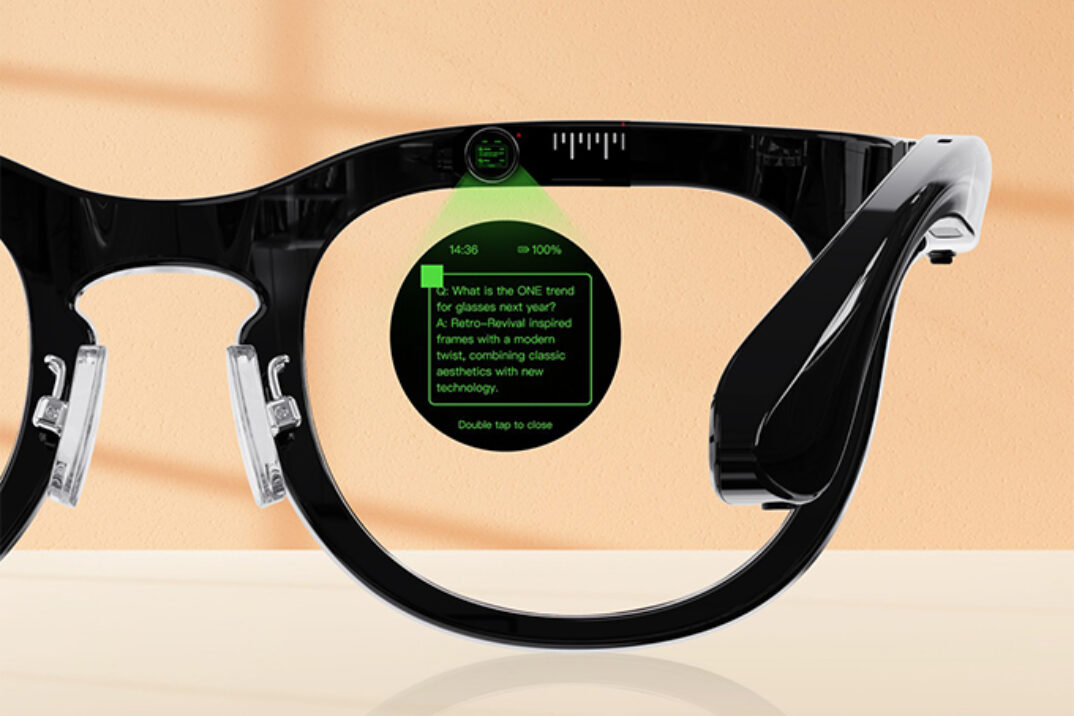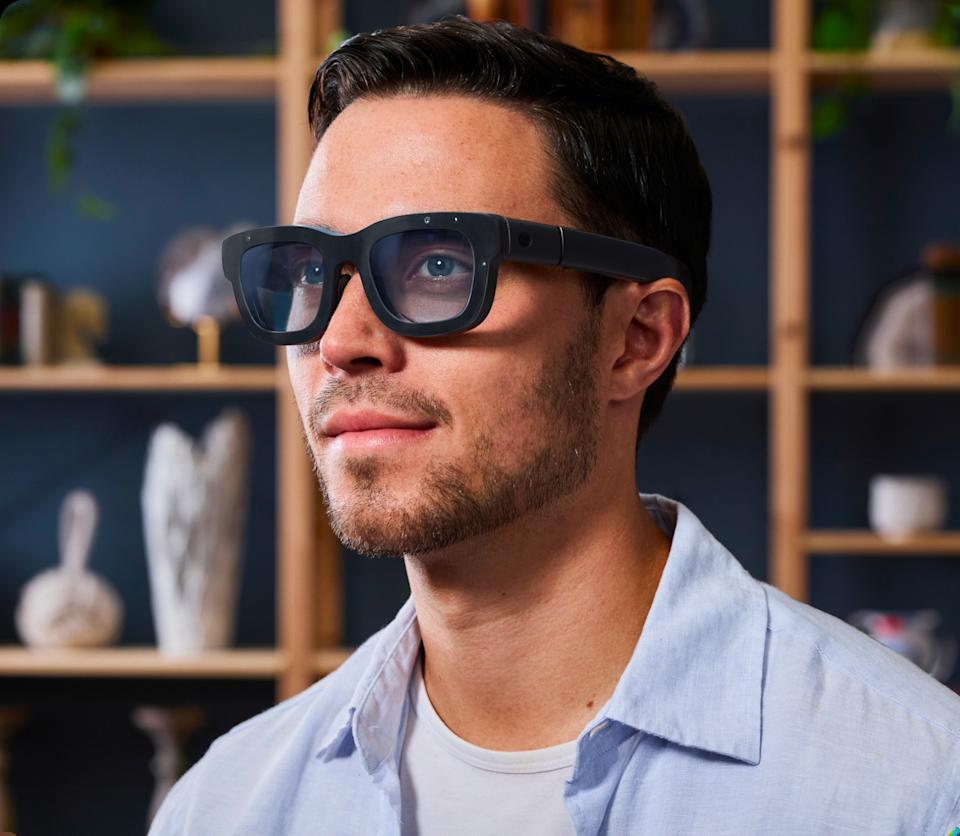Smart glasses are no longer just a futuristic dream—they’ve entered the mainstream, reshaping how consumers interact with digital content, communicate, and navigate their environments. These wearable devices merge augmented reality (AR), voice assistants, and innovative sensors into a hands-free experience. Whether overlaying directions in your field of vision, transcribing conversations in real time, or capturing point-of-view video, smart glasses are redefining convenience, productivity, and daily life.
This deep-dive guide explores the emergence of smart glasses in the consumer market—how they work, the tech inside them, top use cases, key players, opportunities, challenges, and what the future may hold. Crafted for SEO performance and maximizing AdSense revenue, this article offers comprehensive, authoritative insight for tech-savvy readers and mainstream audiences alike.
What Are Smart Glasses?
Smart glasses are wearable computing devices embedded into eyewear frames. They typically include:
A. Transparent AR Displays: Overlay digital information onto the real world
B. Cameras and Sensors: Capture video, scanning, and environment detection
C. Microphones and Speakers: Facilitate voice control, calls, and audio notifications
D. Onboard Compute Power: Small processors for running apps and AI locally
E. Connectivity Options: Wi-Fi, Bluetooth, and sometimes cellular
F. Voice or Touch Controls: Enable hands-free or minimal interaction
Unlike smartphones that distract users from their surroundings, smart glasses enhance reality while keeping the user connected—ideal for hands-free productivity, navigation, communication, and content creation.
Core Technologies Behind Smart Glasses
Smart glasses leverage multiple advanced technologies to deliver seamless AR and interactive experiences:
A. Display Systems
-
Waveguide Optics: Direct virtual images into the eye using transparent microstructures
-
DLP or LCOS Microprojectors: Create high-res overlays in a compact space
-
Mixed Reality Lenses: Combine AR and transparency to blend physical and digital visuals
B. Head Tracking & Spatial Awareness
-
IMUs (Accelerometers, Gyros): Track head movements and orientation
-
SLAM Campaigns: Map real-world environments for precise digital overlay
-
Depth Cameras: Understand spatial layout and context
C. Audio Interfaces
-
Bone-Conduction Speakers: Deliver sound without blocking ears
-
Directional Microphones: Support voice commands and reduce ambient noise
D. AI and Edge Computing
-
On-Device AI: Enables object recognition, voice processing, translation, and scene understanding without full cloud dependency
-
Edge Processing: Reduces latency by processing data locally
E. Battery and Power Optimization

-
Low-Power Components: Balance functionality with battery life, which is often limited to hours
-
Smart Power Modes: Adjust performance based on use case to save energy
Use Cases Driving Consumer Adoption
Several compelling use cases are accelerating smart glasses adoption among consumers:
1. Navigation and Contextual Info
-
Real-Time AR Directions: Overlay turn-by-turn maps in view
-
Translation Assistance: Display translations of signage or captions
-
Low-Light Enhancement: Offer digital overlays in dim settings
2. Communication and Messaging
-
Hands-Free Video Calls: With front-facing cameras and AR displays
-
Live Captioning: Display speech transcription as subtitles
-
Notifications Displayed Visually: Without checking phone
3. Fitness and Outdoor Tracking
-
Heads-Up Workout Metrics: Show pace, distance, heart rate
-
Outdoor Exploration Overlays: Identify landmarks, trails, and points of interest
4. Content Creation
-
First-Person POV Recording: Capture high-resolution video while active
-
Instant AR Filters and Edits: Apply on-the-fly edits or overlays
5. Accessibility & Health
-
AI-Driven Visual Aids: Recognize faces, objects, or text for visually impaired users
-
Health Monitoring: Track blink rate or posture for wellness feedback
Major Players and Devices

Several companies have introduced consumer-focused smart glasses:
A. Meta Quest (Ray-Ban Stories)
-
Open-ear audio, dual cameras, social media integration
-
Ideal for casual use and content sharing
B. Snap Spectacles
-
Fun AR lenses, Snapchat-focused functionality, lightweight design
C. Google Glass Enterprise Edition
-
Simplified AR info for workflows, data capture tools—now leaning toward business users
D. Bose Frames (AR Audio Focus)
-
Emphasize immersive audio experiences with GPS-based audio zones
E. Vuzix and North (Focals)
-
Lightweight models offering AR overlays—targeting both niche and broader users
Each product explores unique trade-offs between style, battery life, processing power, and target workflow.
Benefits of Consumer Smart Glasses
Smart glasses provide numerous advantages in everyday life:
A. Hands-Free Convenience
Allow multitasking—walking, cycling, cooking—without pull-out screens
B. Contextual Awareness
Deliver timely information inline without distracting users
C. Enhanced Safety
Useful in scenarios like cycling or driving, where phone use is a hazard
D. Content Creation Ease
Record footage or images seamlessly in action scenarios
E. Augmented Productivity
Raise digital workflows—real-time translations, reference material, pop-up reminders in view
F. Inclusive Interaction
Assist users with hearing or visual impairments through AR overlays or captions
Challenges and Adoption Barriers
Despite their promise, smart glasses face several hurdles:
A. Battery Life Constraints
Limited usage time (2–8 hours) compared to smartphones
B. Social Acceptability
Users worry about looking odd or being perceived as “always watching”
C. Privacy & Surveillance Concerns
Recording bystanders raises legal and ethical issues
D. Performance and Latency
AR overlays need sub-50ms response for comfortable interaction
E. Price Points
Consumer models currently cost between $200–$1,500—limiting mainstream adoption
F. Comfort and Ergonomics
Long-wear comfort is crucial; weight, heat, and frame design matter
What Still Needs Improvement
Several areas require further development to drive wider adoption:
A. Improved Optics and Display Brightness
Enhance image clarity, contrast, and outdoor readability
B. Battery Efficiency
Extend usage with new battery tech or energy harvesting
C. Richer App Ecosystem
Build compelling apps beyond novelty filters—AR productivity, gaming, wellness
D. Interoperability and Standards
Standardize AR APIs for developers across devices and platforms
E. Social Norms and Regulation
Establish clear norms and privacy standards—legal and social—to sell comfort
Best Practices for Consumers
To get the most from smart glasses, consider:
A. Evaluate Use Cases – Choose devices suited for your primary tasks (navigation, calls, fitness)
B. Check Battery and Comfort – Review real-world reviews for comfort and usage time
C. Try Before Buying – Always test fit, display clarity, and control method
D. Invest in Privacy Awareness – Use recording indicators, respect local laws
E. Stay Updated – Look for regular software updates expanding functionality
F. Explore Authentic Apps – Focus on tools enhancing everyday life over novelty
The Road Ahead: Future of Smart Glasses
Emerging trends indicate major developments:
A. Advanced AR Displays
Full-color, wide-angle, and photo-realistic overlays merging seamlessly into vision
B. Sensor Fusion
Incorporate health, environmental data, gesture recognition, and gaze tracking
C. Edge AI and On-Device Learning
Local processing for faster reactions, better privacy, and offline use
D. Ultra-Light Materials
New composites to make glasses lighter than traditional eyewear
E. Developer Engagement
Open SDKs will fuel a thriving ecosystem of productivity, health, and entertainment apps
F. Regulatory & Social Acceptance
Clear privacy laws and cultural normalization will foster comfort and trust
Conclusion
Smart glasses are poised to revolutionize communication, productivity, and everyday interaction with digital content. While barriers remain—in battery, comfort, privacy, and cost—the momentum is undeniable. As technology improves and apps mature, these devices will integrate seamlessly into daily life, offering hands-free, contextual experiences that elevate how we live, work, and connect.
For content creators and publishers, the rise of smart glasses is a timely topic—driving interest, engagement, and revenue through AdSense-friendly, SEO-optimized content. Exploring the future of AR wearables now positions your platform as a thought leader.
We stand at the nexus of vision and reality. Smart glasses are not just wearable devices—they are a paradigm shift ushering in the next wave of human-computer integration.







